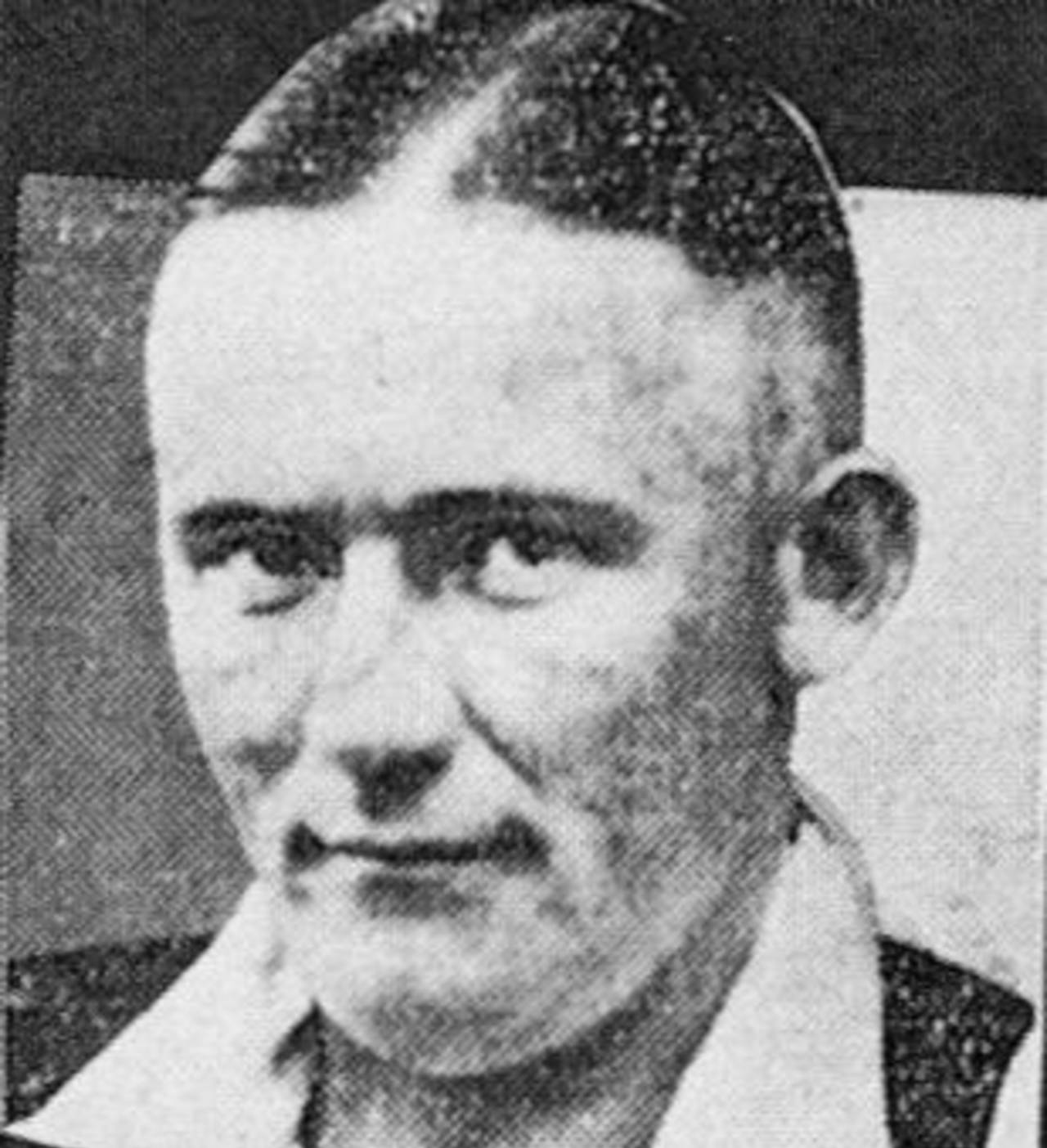Eighty years ago this week a seemingly run-of-the-mill Championship match grabbed the headlines when
Maurice Nichol, a 29-year-old Worcestershire batsman, was found dead in his bed on the second morning of the game.
Born in Durham, Nichol spent time on the ground staff at The Oval and then played for Durham while he qualified for Worcestershire, making his Championship debut for them in 1929, although he did play for them once in 1928 against the West Indians making a hundred on his first-class debut.
He quickly earned a reputation as a good player of spin and immediately became a regular in the side, easily passing 1000 runs in each of his first three summers. In 1931 he acted as 12th man for England and was beginning to be talked about as a possible future England player.
In the winter of 1931, Nichol was hospitalised in Sunderland for several months with pneumonia and pleurisy and unsurprisingly, the following summer, his form suffered badly. Weakened by the illness, he struggled when in the field for long periods and found it hard to build an innings.
In 1933 he seemed to have fully recovered, and enjoyed his best season, making 2154 runs at 43.95, including eight hundreds. There was, however, one incident that hinted all was not well.
In June, Nichol had travelled to Leyton for Worcestershire's match against Essex. He made a duck on the Saturday and on Sunday evening he collapsed at Stratford station and took no further part in the game. He returned home and it was reported he was suffering from heart palpitations. He sat out the next fixture but returned after that with no noticeable side effects.
He started 1934 badly, making only 57 runs in his first five innings. After scoring 4 in his only knock as Worcestershire started their Championship campaign with a win, he travelled to Chelmsford for the Whitsun Bank Holiday match against Essex starting on May 19.
On the first day - a Saturday - Essex scored 367 for 6. With the Sunday a rest day, the players remained in the Saracen's Head Hotel but went their own way during the day. After a quiet morning, Nichol played golf with team-mates in the afternoon. They returned in the evening and spent a few hours in the hotel bar before heading to bed. Team-mates reported Nichol to be in good spirits and he went up to his room at around 11.30pm. About an hour later he went to see Harold Gibbons, Worcestershire's opening batsman, to cadge a cigarette.
When Nichol did not make breakfast the next day, at around 9am Syd Martin was sent to his room, where Nichol was discovered dead in his bed. Martin later told the coroner that Nichol was wearing only his shirt and that, as he had pyjamas with him, he assumed he had laid on the bed to read before finally undressing.
After a doctor was called to confirm what they knew already, the team headed to the ground, where the news was broken to the Essex players. Being a Bank Holiday, Chelmsford was full but the start was delayed for half an hour before it was decided to play on. Initially the crowd were bemused by the delay but word slowly spread. Flags were lowered to half-mast and everyone stood for a two-minute silence at the end of the first over.
The scorecard printers were faced with the problem of how to show Nichol. The decision was made to print a black line above and below his name.
On the Tuesday several newspapers alleged Nichol had been engaging in what was described as "horseplay" on the Sunday evening, wrestling team-mates and generally mucking about. This was strenuously denied by team-mates, who told the coroner at the inquest such claims were "disgusting". The coroner agreed, saying that "to suggest [Nichol's death] was associated with what has been suggested makes it particularly more painful and the suggestion is one to which there is no foundation whatsoever".
Asked what happened by the coroner, Gibbons said the players, including their captain, the Nawab of Pataudi Sr, spent the evening in the bar talking. "Maurice sat on his bag and did not get off until we left. We simply laughed and enjoyed what was said."
But he did also reveal that it was common knowledge Nichol had a weak heart "and he suffered from frequent palpitations after any exertion".
That was borne out by the conclusion of the inquest, which decided that Nichol could have died at any time. "I have never seen a larger heart," said the doctor who carried out the post mortem. "It was unbelievable he lived so long… a man in first-class cricket with a heart like that." The coroner then returned a verdict that death was due to cardiac failure, following pneumonia.
Three days later Nichol's body was taken home to Heston in County Durham, where hundreds lined the streets as the funeral cortege passed. Among the mourners was his fiancée, who he was due to marry at the end of the summer. The coffin was carried by five of his old Durham team-mates along with the county scorer. None of his Worcestershire team-mates were able to attend, as the county was playing Glamorgan.
Martin Williamson is executive editor of ESPNcricinfo and managing editor of ESPN Digital Media in Europe, the Middle East and Africa

